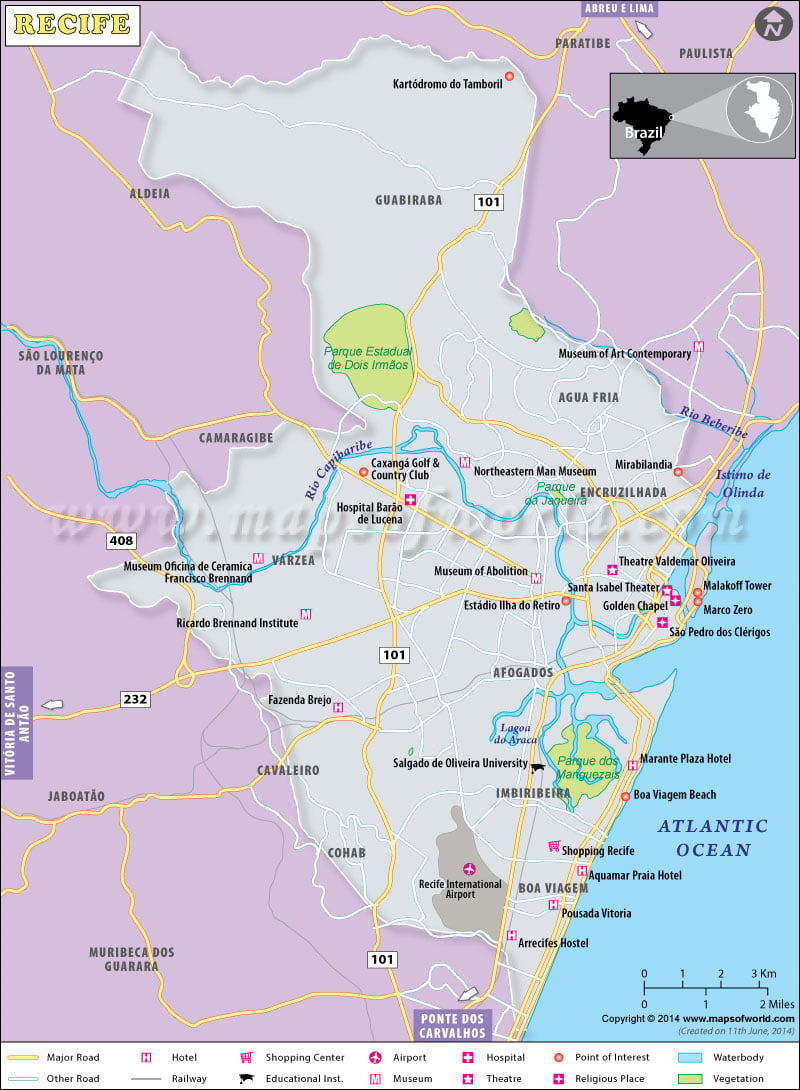Recife Brazil is the second largest city located in the northwestern part of Brazil. As the fifth major Brazilian metropolitan, Recife is the capital of Pernambuco and an important center of extensive scientific, cultural, political and economic activities. Situated at the confluence of Rivers Capibaribea and Beberibe, Recife Brazil is also a well-known international port on the Atlantic.
Apart from the native Brazilian tribes, areas surrounding Recife Brazil was originally inhabited and ruled by the Portuguese rulers. The Dutch and the European intrusions, who popularized the cultivation of sugarcane on the land, successively followed the Portuguese invasion. Pernambuco earned considerably from the rising sugarcane insustry at that time. Slowly, the industry declined following the outbreak of riots in the 18th century between the rich sugarcane cultivators and the traders.
Recife Brazil experiences a tropical climate, with warm summer temperatures and high relative humidity throughout the year.
The cool trade winds blowing over the land inhibit the temperatures from being extreme. As a result, overall temperature varies between 32ºC and 17ºC, with sufficint rainfall in July and ample sunshine in January. This typical climate has given birth to Tropical Raiforests in the region.
The 2006 census states the population of Recife Brazil to be 1,515,052, having a density of 64,78/km2. This highly populated Brazilian region is the birthplace of writers, musicians, artists and music, like Mangue Beat and Frevo. A handful of famous tourist destinations like Tamandare and Boa Viagem beaches, the historical constructions and the churches, as well as the Recife Antigo carnival attract huge travelers annually. Numerous theatres, films and museums also form integral parts of the assorted Recife culture, with extensive colonial reflections.
Recife Brazil owes its economic growth mainly to farming, livestock raising and industrial activities. Though Portugese is the official language of the land, both English and Spanish languages are widely used at school, college and university education levels. Together with excellent transport networks, Recife Brazil stands out to be one of the most prosperous and accessible cities throughout Brazil.
